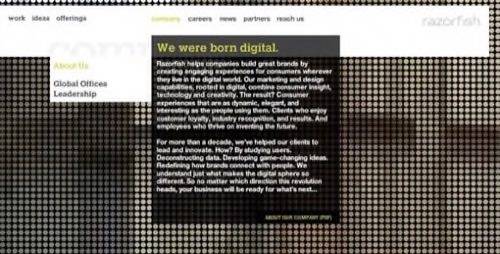Publicis Groupe SA announced today the acquisition of Microsoft’s Razorfish advertising agency for $530 million dollars. In a joint press release, the group announced that the deal will increase Publicis’ ability to deliver digital campaigns and further elevates Razorfish’s status as a leader in online marketing. According to Bloomberg, in exchange for Razorfish, Publicis will give Microsoft 6.5 million in shares – a deal that makes Microsoft a 3% owner of the advertising company.

As a standalone agency, Razorfish has had a number of high-profile partners including Google, ABC.com, Omniture and Adobe. Microsoft first acquired Razorfish’s parent company aQuantive for nearly $6 billion dollars shortly after Google announced plans to purchase DoubleClick and its display ad serving products. At the time, aQuantive was comprised of Avenue A | Razorfish, DrivePM and Atlas. While the acquisition served Microsoft well by giving the company a good ad management dashboard in Atlas and an ad ranking solution in DrivePM, the Redmond giant kept Razorfish at arms length. Despite the fact that the company won at least 7 Webby’s and a number of other advertising awards, between October 2008 and February 2009, Razorfish cut 120 of its US employees to reduce costs during a particularly bad year for advertisers. With this new deal, the company remains Microsoft’s ad agency of record and gains new Publicis resources to ramp up digital production. Nevertheless, is Razorfish able to deliver on its promise to help “media companies succeed in an era where the audience is also their editor?”

The company has shown a number of user-generated successes including CNN.com’s iReport, Netflix’s Instant Viewing Player and TED’s Encyclopedia of Life and Pangea Day film festival.
However, just as agencies are shifting from print and broadcast campaigns to digital advertising, is it possible that amateur dynamos are preparing to hijack the industry? Last week ReadWriteWeb covered Digg’s new ad program – a program where advertisements can be voted up or voted down by the community. As advertising shifts to this new mixed-content model, where are companies more likely to see success – with content from world-class advertisers or trusted community members? As always, especially with the current market, agencies will have to work tirelessly to justify their retainers.

















